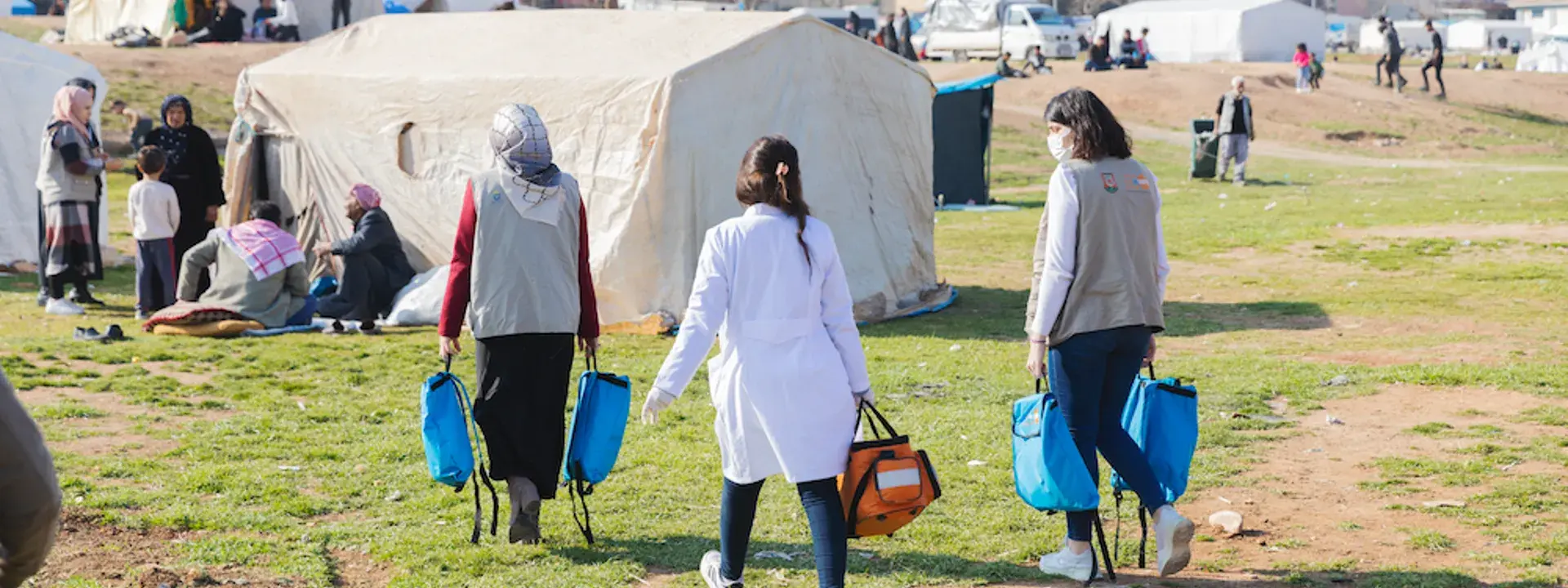UNFPA in Syria
UNFPA operates in Syria under the umbrella of the 8th Country Programme Document (2016-2017) extended to 2019 and the Humanitarian Response Plan. The overall aim of the country office is to contribute to three long-term strategic goals of zero preventable maternal deaths, zero unmet need for family planning, and zero GBV and harmful practices in Syria. To achieve these goals, UNFPA invests in the capacity of the health and social systems and NGOs to provide reproductive, maternal health and GBV services and expand the partnership with local communities and academia. In the absence of UN Women, UNFPA works to enhance women’s empowerment and gender equality reduce childe marriage and advocate for youth education, inclusiveness and civic participation especially in the light of the SCR 2250 on Youth, peace, and security.
UNFPA leads the GBV Sub-sector coordination in Syria as part of the Protection Sector and actively contributes to the work of Health Sector. The key types of UNFPA programmatic services include; static and mobile RH and GBV clinics, Women and Girls Safe Spaces, family protection units, as well as Community Centres with integrated services. Furthermore, UNFPA supplies various types of dignity kits for female and male beneficiaries, several types of reproductive health kits for clinics, and hygiene products for women and girls.
Renewed efforts on data management and analysis are taking place through secondment of expertise to OCHA’s Population task Force, engagement with the UN Country team and Syria’s Central Bureau of Statistics on population related SDG data, as well as development of joint strategy on statistics with ESCWA.
UNFPA Country Office is increasing the efforts to contribute to the resilience pillar of HRP, focusing on rehabilitation of basic social infrastructure such as health clinics and community centres, restoration and expansion of quality services with a social inclusion and social cohesion objectives. UNFPA closely cooperates with all UN Agencies present in Syria.
Programme specific objectives:
- Improving access to high-quality reproductive health care
- Scaling-up Gender-Based Violence prevention and response
- Strengthening youth capacities as positive contributors through enabling their participation while enhancing livelihoods opportunities
- Supporting capacities to collect and use gender-and age-disaggregated data for tailoring response and recovery programming
Strategy:
- Improving individual, institutional, and community resilience
- Sustaining humanitarian response in protracted contexts
- Supporting social cohesion and policy dialogue on human rights, gender equality, and specific SDGs.




